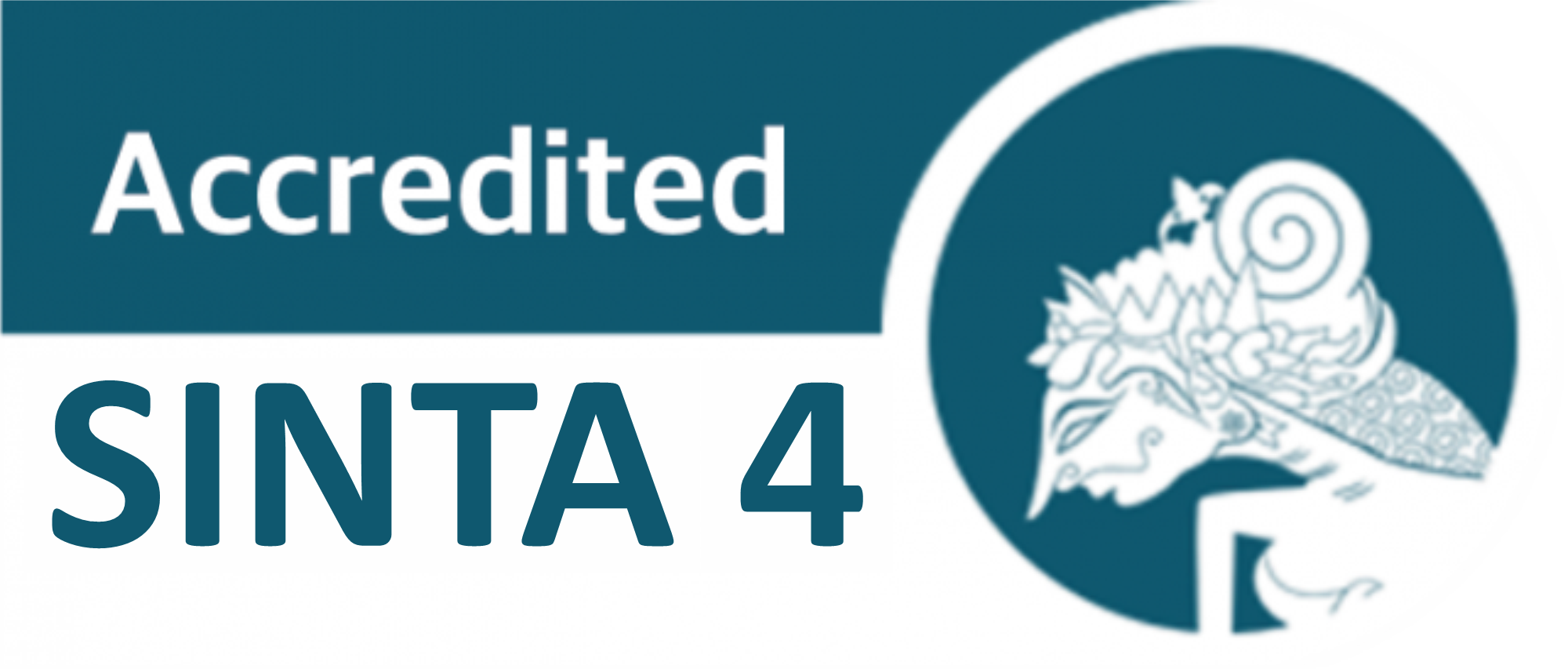HALLIDAY’S DISCOURSE ANALYSIS OF THE "TATAP" EXHIBITION
Keywords:
Exhibition, Painting , Halliday’s discourse , AnalysisAbstract
Painting exhibitions are part of a discourse strategy published by artists through public spaces. Where art exhibitions generally try to represent multi-dimensional values in the form of artwork from various types of spaces. Exhibitions are seen as art events that are discoursed in the form of exhibition packages with the theme "Tatap". Tatap is the concept of Ahmad Junaidin's solo exhibition which consists of three categories of small sub-themes, namely the theme of nature, the theme of Sasak mythology, and the theme of tradition. Behind the exhibition with the theme "Tatap" of course, there is another purpose that must be conveyed by the discourse to the audience. The purpose of this study is to try to describe the existence of the dimensions of the artist's paintings that are exhibited and the curatorial dimensions presented in the form of a narrative of the relationship between works and paintings are dimensions that are related to one another. Because behind the text, both visual and verbal, there are certain intentions and purposes. This study uses a qualitative research type with the Halliday discourse analysis research method consisting of the field of discourse (field of discourse) what is being discussed, the discourse participants (tenor of discourse) who are involved in the conversation, and the mode of discourse (mode of discourse) the choice of language used by the media. The results of the study show that what is exhibited and what is opined experience distortion between the work and its curatorial.References
Aryani W, R. (2022). Modifikasi Interaksi Fisik dalam Pameran Virtual. Idealogy Jurnal, 7. https://doi.org/10.24191/idealogy.v7i2.341
Azmi, L. C. Y. dan. (2013). Identifikasi Ragam Hias Melayu Pada Pameran Hasil Kerajinan Cenderamata Di Arena Pekan Raya Sumatera Utara Yang Ke- 41. Gorga : Jurnal Seni Rupa, 2(2), Article 2. https://doi.org/10.24114/gr.v1i3.1065
Cempaka, G., W, A. D., & Sajili, M. (2022). Manajemen dan Tata Kelola Kemitraan Lintas Sektor Dalam Kegiatan Pameran Seni Rupa di Museum Basoeki Abdullah Jakarta Studi Kasus: Pameran Narasi Mitos dan Legenda. Jurnal Manajemen Dan Bisnis Madani, 3(2), Article 2.
Chia, P., & Fitryona, N. (2022). Analisis Karya Seni Lukis Yasrul Sami. Gorga : Jurnal Seni Rupa, 11(2), Article 2. https://doi.org/10.24114/gr.v11i2.39582
Dewi, N. K. (2023). Analisis Kemampuan Mendesain Poster Bertema Seni Budaya Ntb Pada Mahasiswa Calon Guru Sekolah Dasar. Gorga : Jurnal Seni Rupa, 12(1), Article 1. https://doi.org/10.24114/gr.v12i1.43654
Gunalan, S., Haryono, H., & Yasa, I. N. M. (2022). Analisis Pemaknaan Dan Tanda Pada Desain Logo Gp Mandalika Series. Gorga : Jurnal Seni Rupa, 11(1), Article 1. https://doi.org/10.24114/gr.v11i1.34285
Hazmi, F. A., Zenmira, K. N., & Budyawan, S. A. (2021). Persepsi Partisipan Terhadap Kualitas Pameran Seni Rupa Secara Virtual dalam Situasi Pandemi Covid-19. JURNAL TATA KELOLA SENI, 7(2), Article 2.
Kartika, S. (2020). Kreasi Artistik Perjumpaan tradisi moderen dalam Paradikma Kekaryaan seni. Citra Sains.
Kriyantono, R. (2019). Teknik Praktik Riset Komunikasi.
Kusumowardhani, P. (2018). Analisis Motif Ragam Hias Batik Jawa Tengah Berbasis Unsur Visual Bentuk Dan Warna (Studi Kasus Batik Semarang dan Pekalongan). Narada : Jurnal Desain dan Seni, 5(2), 201–213.
Migotuwio, N. (2016). Manajemen Strategi Pengelolaan Pameran Patung Di Ruang Publik [Masters]. Pascasarjana ISI Yogyakarta.
Natasha, M., Rahima, A., & Sujoko, S. (2022). Jenis–jenis Tema dalam Novel Anak Rantau Karya A. Fuadi (Kajian Analisis Isi). Aksara: Jurnal Ilmiah Pendidikan Bahasa Dan Sastra Indonesia, 6(1), 89–100.
Rasul, R. (2018). Tubuh Dialog: Wacana Ekspresi Gerak Tubuh Dalam Penciptaan Karya Seni Lukis. Narada : Jurnal Desain dan Seni, 5(2), 275–288.
Rushartono, L. C. (2023). Apresiasi Seni Rupa: Media Digital Akun Instagram @bukusenirupa dan Tiktoker Pameran Seni Yogyakarta. Dekonstruksi, 9(03), Article 03.
Setiasih, N. W. (2021). Ruang Digital pada Pameran Unit Kegiatan Mahasiswa Multimedia ITB STIKOM Bali. Ars: Jurnal Seni Rupa Dan Desain, 24(1), Article 1.
Ulva, A. F., Fhonna, R. P., Aidilof, H. A. K., Nur, M., & Zikri, M. (2022). Inovasi 3D Virtual Reality Exhibition dalam Konsep e-Marketplace untuk UMKM Binaan MUI Menggunakan Metode Occlusion Based Berbasis Web dan Mobile. G-Tech: Jurnal Teknologi Terapan, 6(2), Article 2. https://doi.org/10.33379/gtech.v6i2.1660
Yulius, Y., Pebryani, N. D., Suharto, S., Aiununnisa, A., & Rahma, H. (2024). Analisis Elemen Visual Penerapan Letter Spacing Pada Kampanye Anti Rasisme Liga Inggris. Gorga : Jurnal Seni Rupa, 13(1), Article 1. https://doi.org/10.24114/gr.v13i01.58181
Zuliati, Z. (2016). Kelompok Pita Maha: Gerak Menuju Seni Lukis Modern Bali. Journal of Urban Society’s Arts, 3(1), Article 1. https://doi.org/10.24821/jousa.v3i1.1479
Downloads
Published
How to Cite
Issue
Section
License
Copyright (c) 2024 Haryono Haryono, Christofer Satria, Taufik Mawardi

This work is licensed under a Creative Commons Attribution-ShareAlike 4.0 International License.
Copyright
Authors published in this journal agree to the following terms:
- The copyright of each article is retained by the author (s).
- The author grants the journal the first publication rights with the work simultaneously licensed under the Creative Commons Attribution License, allowing others to share the work with an acknowledgment of authorship and the initial publication in this journal.
- Authors may enter into separate additional contractual agreements for the non-exclusive distribution of published journal versions of the work (for example, posting them to institutional repositories or publishing them in a book), with acknowledgment of their initial publication in this journal.
- Authors are permitted and encouraged to post their work online (For example in the Institutional Repository or on their website) before and during the submission process, as this can lead to productive exchanges, as well as earlier and larger citations of published work.
- Articles and all related material published are distributed under a Creative Commons Attribution-ShareAlike 4.0 International License.
License
Gorga : Jurnal Seni Rupa is licensed under a Creative Commons Attribution-ShareAlike 4.0 International License.










